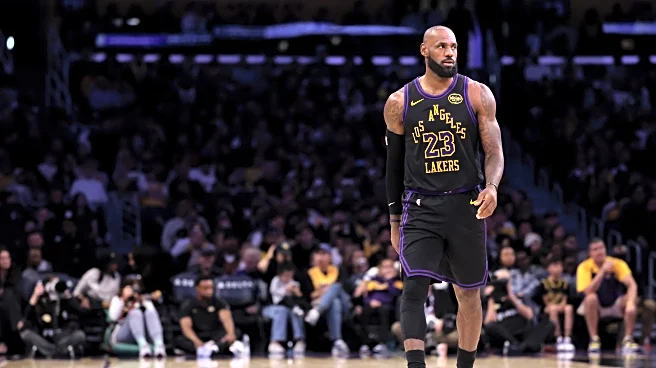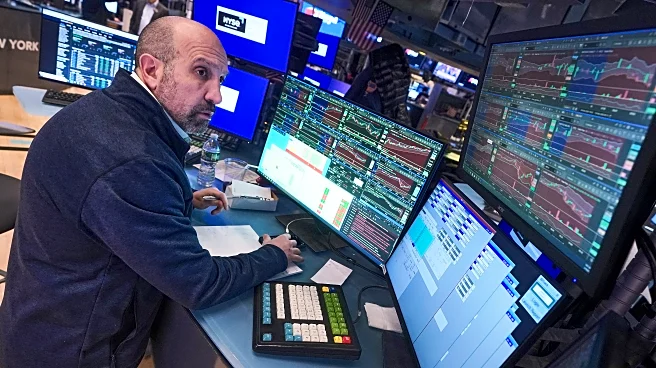What's Happening?
The Paris prosecutor has announced preliminary charges against two new suspects in connection with the high-profile heist of crown jewels from the Louvre museum. The suspects, a 37-year-old man and a 38-year-old
woman, have been charged with theft by an organized gang and criminal conspiracy. The man is known to authorities for previous thefts, while the woman, who denies involvement, is accused of being an accomplice. Despite these arrests, the stolen jewels, valued at approximately $102 million, remain unrecovered. The heist involved a team of four who used a freight lift to access the museum, stealing items including a diamond-and-emerald necklace and a pearl-and-diamond tiara. The investigation has seen significant mobilization, with about 100 investigators working on the case, analyzing forensic samples and gathering evidence.
Why It's Important?
The Louvre heist underscores significant security challenges for cultural institutions housing valuable artifacts. The theft of such high-value items not only represents a substantial financial loss but also a cultural one, as these jewels are tied to significant historical figures and events. The ongoing investigation highlights the complexities involved in tracking organized crime networks and recovering stolen artifacts. The case also raises questions about the effectiveness of current security measures in place at major museums and the potential need for enhanced protocols to prevent similar incidents. The involvement of organized crime suggests broader implications for law enforcement agencies tasked with combating such networks.
What's Next?
As the investigation continues, authorities are likely to intensify efforts to recover the stolen jewels and dismantle any wider criminal networks involved. The case may prompt a review of security measures at the Louvre and other museums, potentially leading to increased funding or technological upgrades to prevent future thefts. The legal proceedings against the suspects will also unfold, with potential implications for how organized crime is prosecuted in France. Public and governmental scrutiny may increase, pressuring law enforcement to deliver results in high-profile cases like this.











